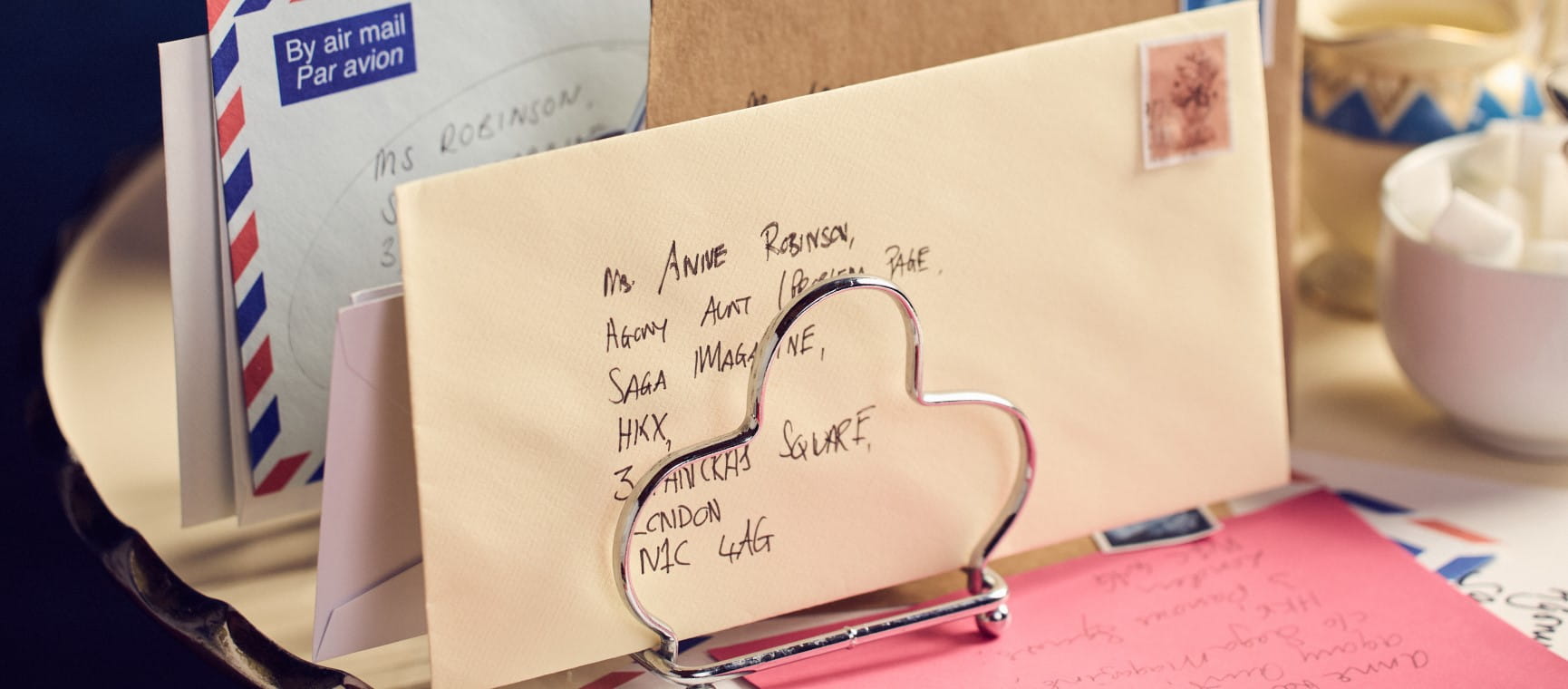Susie Dent on festive words and phrases
With the ‘jolly-timbered’ Santa on his way, our columnist shares some Christmas spirit with her favourite seasonal sayings.

With the ‘jolly-timbered’ Santa on his way, our columnist shares some Christmas spirit with her favourite seasonal sayings.

As the countdown to Christmas begins, my guess is you will be experiencing one of two things: a sense of happy betwitterment (pleasing, if nervous, excitement) or apanthropy: the desire to be left alone. It’s perfectly possible that you will feel both emotions in the coming weeks, as festive jubilation approaches at the same time as carloads of friends and family.
And so, in that spirit, I thought I’d offer a few of my favourite words for this complicated season, in an attempt to cover all bases.
I’ll kick off with festive food, which was once known by the rather wonderful name of ‘bellycheer’ (basic food, the kind that propped you up, was ‘bellytimber’). The customary overspending on food and drink at this time of year was, in the 18th century, called ‘abligurition’, while the inevitable result from the eating and drinking of it all was known rather more plainly as ‘crapulence’.
I’ve decided I much prefer the phrase ‘jolly-timbered’, once used to mean ‘round and cuddly’ and surely the perfect term for Santa.
Speaking of alcohol, while many of us are familiar with some of the insults once directed towards the Dutch for political reasons, resulting in such expressions as ‘Dutch courage’ (aka the kind only achieved through drink), it is worth knowing that a ‘Dutch feast’ is one in which the host gets drunk before the guests.
Needless to say, before those guests arrive, you will have resorted to some serious ‘scurryfunging’ – a glorious description for the frantic rushing about the house we do just before the doorbell goes, throwing things in cupboards or behind sofas to tidy up.
Every gathering has its ‘lickspigot’, a remarkably descriptive term from the 16th century for the friend who always seems to turn up just as you’re opening a bottle of wine. The guest who, to quote the dictionary, ‘scents out when feasting is to be had’ is of course a ‘smellfeast’.
But when everything is still all smiles and you are eyeing up the mistletoe, may you enjoy ‘firkytoodling’ aplenty – 19th-century speak for kissing and romantic messing about (I won’t spoil the party by explaining the origins of the word ‘mistletoe’: let’s just say its literal meaning is ‘poop-twig’ thanks to the way it’s propagated).
Of course, for all its joy, Yuletide does tend to provoke the annual family arguments, as board games such as Scrabble are dusted off and there are only coffee cremes left in the Quality Street tin. Within the family, in my experience, there is always one ‘ipsedixitist’: the person who insists that their view is correct without offering any proof whatsoever.
Yule itself is a relative of the word ‘jolly’, and the two do seem to go perfectly together.
I discovered not too long ago that there was once such a thing as a ‘Yule-shard’ – someone who leaves things unfinished before the holidays begin. Every office has one.
But let’s put cynicism aside and embrace some of the lost positives that linger in the dusty corners of the dictionary, if only we noticed them more.
Christmas is surely the time for ‘confelicity’, a joyful word that describes the altruistic pleasure we take in someone else’s happiness. If we are lucky enough to watch small children rush to open their presents under the tree on Christmas morning, confelicity is guaranteed.
I’ll leave you with surely the best of all the lost positives, and one that I remember at every year’s end. There is just a single record in the dictionary of the word ‘respair’, and yet it is as beautiful as it is rare. It means simply ‘fresh hope’.
This Christmas, I wish everyone respair. And, if we’re lucky, a bit of firkytoodling on the side.

The ultimate guide to Saga Puzzles, full of technical tips, tricks and hints.

With the start of the new financial year on 6 April, our money expert explains the changes to your pension, benefits and taxes.





